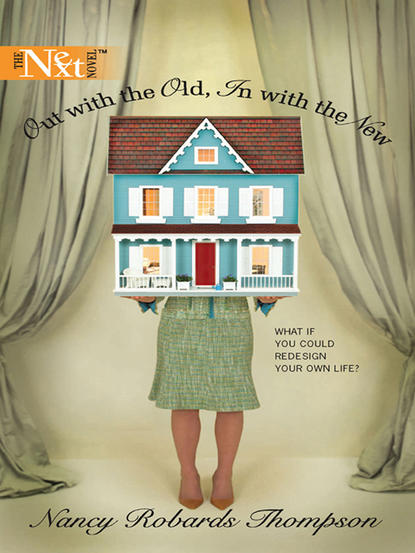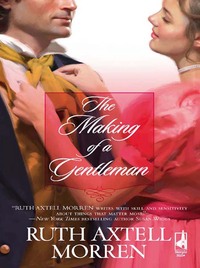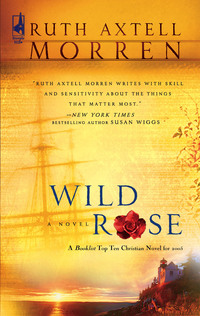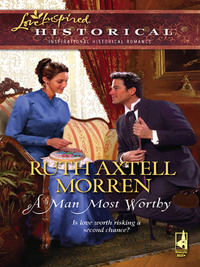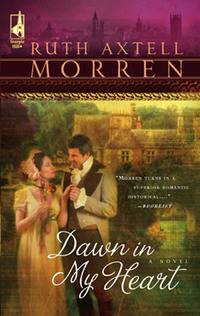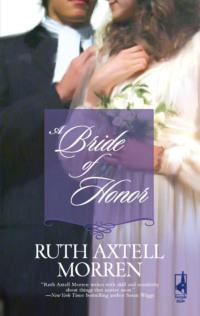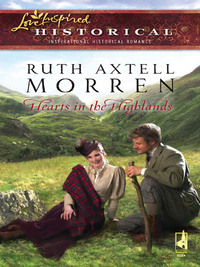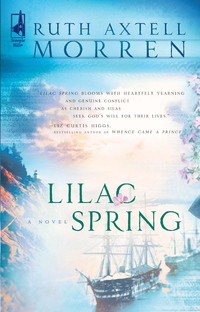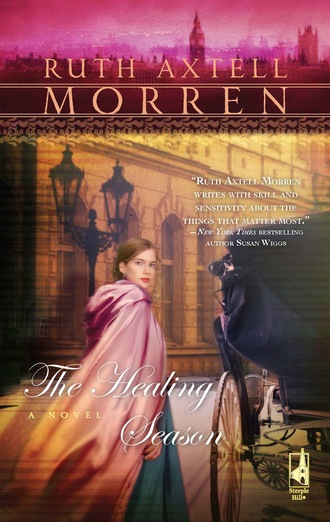
Полная версия
The Healing Season
With a jerk, he took the toys off the shelf and slammed them on the counter, a Bartholomew baby doll for the girl, a wooden dog covered with patches of fur for one of the boys, and a yo-yo for the other.
The children grabbed them and chattered happily as they were led away by the adults.
“You’ve made a few children happy for the day,” Ian remarked as they continued down the street.
“You say they hang about the dispensary.”
“Yes. The whole neighborhood is full of children.” She made no reply. “Mrs. Neville, where did you learn such an accurate aim?”
She smiled. “Oh, I’ve thrown a lot of darts in my life. I told you I started out my career at street fairs.” She nodded up ahead. “See the acrobats? I was cutting capers and walking on ropes since I was fourteen. We traveled from village to village and town to town. There was ample time to play darts at taverns or just nail the board to a tree when we had to camp out on a meadow.”
He listened, finding it hard to imagine such a fashionably dressed young lady up on a makeshift stage doing acrobatic tricks.
They ambled down the street, stopping frequently. The children watched in awe a juggler tossing balls in the air. Another player balanced a ball at the end of a stick.
“I’ve done it all. Even equestrian feats. That’s how I started at the Surrey.”
“And now?”
“Now? I have lead roles in the melodramas, only we mustn’t call them melodramas, only burlettas, or we might lose our license. The royal theaters at Drury Lane and Covent Garden are the only ones permitted to put on straight dramatic works.”
“I didn’t think there was much difference,” he said drily. He knew enough of the theater to know that in recent years the Drury Lane and Covent Garden were known to put on bigger and bigger extravaganzas instead of pure classical dramas.
“Strictly speaking, anything the minor theaters put on must be set to music, with no spoken lines permitted. But you’re right, there is less and less distinction between the majors and minors. Still, we must watch how we bill our performances or we could be shut down.”
A pastry vendor came by, swinging the tray suspended from his neck back and forth. “Tasty hot pasties. A ha’pence each, penny for two. Come and have a meat pasty!”
Ian stopped the man and bought the children each a bulging meat pastry. He turned to Mrs. Neville. “Would you care for one?”
“No, thank you. I eat very little before a performance.”
He eyed her critically. She seemed much too fragile to him. “You can’t mean to say you starve yourself during the day.”
“I have been recently following a regimen of only fruit and vegetables on a performance day and tea laced with honey and lemon for my throat. I only dine after the show.”
“You certainly don’t look as if you needed to follow such a strict regimen.” He offered her his pastry.
“I shall only take a bite since it looks so tempting.” She broke off a corner of the warm pastry he held out to her.
“Thank you, it’s delicious,” she told him after she’d swallowed it and daintily wiped her mouth with her lace-edged handkerchief. As she looked up at him, he was struck afresh by the color of her eyes. It was the clear gray of the mist hanging over the sea at dawn.
He cleared his throat, too dazed by his reaction to her to formulate any more complicated response than “You’re welcome.”
They stopped at another booth, this one selling all sorts of trinkets. After Jem had bought a pair of fans for the two ladies, he turned to present one to Mrs. Neville.
“I c-can’t believe I’m really h-here walking with a famous actress. How do you do such amazing things on the stage, from pretending you—you’re a pirate to a princess—”
She laughed as she took the fan and opened it with a flourish. “Haven’t you heard that ‘all the world’s a stage’? You live in one. Look around you. There are all kinds of dramas taking place right under your nose.
“Take that couple for instance.” She motioned with her fan to a stout couple standing at the next booth. “You can tell by their gestures alone that he missed his target and now she is berating him for wasting his money and not getting her a prize.”
“You’re right,” Jem told her in amazement. He burst out laughing when the colorfully dressed woman turned to the man and scolded him for his clumsiness. “How did you notice them?”
She shrugged. “I take those things I see and use them on the stage—the irate wife, the distressed husband, the lost, frightened child.” She stopped talking and, fixing her eyes on Ian, stared hard at him for a few seconds.
“Wot? Don’t you see the draggle-tailed duck in front o’ yous? Can’t you ’it the bleatin’ target? I didn’t come to the fair so you could lose all our brass. What kind of a big looby are you?” She turned to Jem and the actress with a nod. “Gor, if it’d been my first ’usband, Alf, never a better man, if ’e’d ha been ’ere, ’e’d ha’ knocked down a dozen ducks already.”
Jem and the children were doubled over in laughter, and the younger actress was clapping her hands in glee. Ian couldn’t help but smile. He was as captivated as Jem by Mrs. Neville’s ability to capture the scene they’d witnessed only briefly at the next booth.
It struck him that this beautiful woman was as close an observer of human drama as he was of a sick body in order to diagnose it properly.
“Come, we’d better keep moving before they notice us,” she said, once more in her natural tone. She placed her hand in the crook of his elbow, and Ian looked down at the kid glove, wondering at how natural it felt to have it resting there.
They walked along, following Jem and the children. Mrs. Neville’s young friend had attached herself to Jem, and Ian watched in amusement as Jem blushed and stammered his replies to her.
A moment later Ian turned to an angry voice up ahead.
“They take away the food from a man’s mouth. They make us fight for the king, then put us on the street when we come ’ome!” A dirty, disheveled man wearing an old army jacket, stood waving a crutch and shouting to the crowd. One foot ended in a filthy, wrapped stump.
Ian felt Mrs. Neville’s hand tighten on his arm as she noticed the speaker. “Poor man,” she murmured.
The speaker soon had a group gathered around him, raising their hands and shouting back in agreement.
They stood watching him for a couple of minutes, but then the mass of people attracted by the angry veteran began pressing uncomfortably around them.
“It sounds like a disgruntled soldier,” he answered briefly. “It could get ugly. People have been drinking.”
Mrs. Neville looked worried. “Perhaps we should turn around. The children—”
“Yes.” Ian raised his voice to get Jem’s attention. Unfortunately, the young man had been drawn to the excitement ahead, and Ian had to squeeze through the growing crowd to reach him.
“Jem, hold up.”
“Yes? What—oh, it’s you, Ian.”
“I think we should leave this area.”
By this time the voices had grown louder and angrier and people began jostling and pushing to get closer.
A rock flew over the crowd and glass shattered. As if a signal to erupt, the crowd took up whatever was at hand and began throwing things. Men swung their canes around, unmindful of who stood in the way. Women flung their handbags and umbrellas, children screamed.
In a matter of seconds, they were in the midst of a full-blown riot.
Chapter Four
The crowd took up rocks, clubs and sticks and directed the brunt of their violence at the booths and the shop windows around them.
“We’ve got to get the children out of here!” Ian shouted to Jem. The young actress clung to the apprentice, her eyes screwed tight. “Follow me.”
Jem nodded his head and grabbed one of the children with his free arm. Ian grabbed the other two, who were crying. Mrs. Neville took the girl from him and sheltered her under an arm.
They fought against a wall of bodies. Ian picked up the child he had and swung him over his shoulder as he guided Mrs. Neville forward. Jem followed with the other actress, and the two muscled their way toward an alley.
They managed to reach a small area behind a booth.
“Jem, you take the children back to the dispensary. I’ll escort the ladies to their carriage.” He turned to them. “You have your carriage?” he asked Mrs. Neville.
“Yes, but it’s quite a ways from here.” She looked behind her in worry. “I don’t think we can make it back.”
In the few seconds they had been talking, the crowd had again surged forward. Angry men and women lunged at them, determined to break and smash everything around them. The children screamed, huddling into the adults’ bodies.
“Take them away!” shouted Ian. “I’ve got to stay. There are bound to be injuries.”
Jem nodded. “I’ll get them to safety,” he said, already making for the narrow alley.
Ian attempted to herd the women toward Jem, but at that moment they were separated by a mass of bodies. He was thrown against a wooden structure and felt the wind knocked out of him. Searing pain shot through his lower back.
When he looked up, he could no longer see Jem or the children.
“Are you all right?” Mrs. Neville leaned over him, shouting through cupped hands.
He nodded. “Where’s your friend?”
“She’s with Jem. He’s gotten them out of the fray.”
“You mustn’t stay here. It’s too dangerous.” As he spoke, he attempted to rise. She took his arm to help him up.
He managed a few hobbling steps, ignoring the pain in his back. He put his arm around Mrs. Neville to shelter her as much as possible from the angry mob.
They were swept along by the crowd. All he could do was hope to shield Mrs. Neville from flying objects. Rocks were hurled without regard as to whether they hit building or human.
Inch by inch, Ian headed toward a doorway. When at last he reached it and pulled Mrs. Neville into its alcove, he stationed himself in front of her, creating a wall between her and the mob.
Glass shattered around them. The smell of smoke reached their nostrils. He prayed the fires wouldn’t get out of control in this already poverty-stricken neighborhood.
“Down with the Regent!” the crowd yelled. Some had lit torches and with angry shouts, they struck them at the vendors’ booths. The merchants yelled in fear and tried to protect their wares, but this only incited the crowd to attack them further. The merchants ran away in fear.
Dear Lord, guide Jem and the others safely out of here….
Eleanor heard the shouts of the crowd, the footsteps rushing past, but they were muffled now. She was safe, wrapped in a warm, shadowy cocoon.
Mr. Russell stood squarely in front of her, shielding her from the brunt of the mob. She stood on the step where he had placed her, unable to see what was going on but feeling strangely exhilarated by the circumstances, at risk yet protected.
She could make out the top edge of Mr. Russell’s waistcoat above his coat. If she lifted her hand, she could trace the outline of the topmost button with her fingertip. Her bonnet touched his chin.
It was a nice feeling. A phrase drifted into her thoughts—to love, honor and cherish… Was this what it felt like to be “cherished”? The last part of the phrase came into her mind unbidden, till death do us part.
At that moment someone slammed against Mr. Russell’s back. Although he braced his arms against the door behind her, he couldn’t completely cushion the impact of the blow. Her face was crushed against his neck and her bonnet fell back. She smelled the fresh-laundered scent of his neck cloth.
As soon as he was able, he righted himself and drew away from her while still anchoring her between his arms. “I beg your pardon. Did I hurt you?”
His eyes roamed over her face as he spoke, examining it for injury.
Gingerly she touched the bridge of her nose with her gloved fingertips. “No. I’m quite all right.” Never better, she realized. “Are you?” He had taken the brunt of the impact.
“Yes, I’m fine.” His perusal over, his brown eyes fastened on hers.
She stood spellbound. For the first time in her life she had the sensation of being safeguarded by a man, and not safeguarding herself from one.
They stood several minutes in the alcove of the doorway as the crowds pushed by them, wreaking destruction everywhere. Eleanor stood content, sure nothing could happen to her in the shelter of Mr. Russell’s arms.
She didn’t notice when the shouts eventually diminished, but felt the immediate absence of Mr. Russell’s body when he took a step away from her. Sunshine fell back on her face. He looked away from her. “They’ve moved on down the street. Toward the Thames, I expect.”
“I hope they don’t set fire to the theater.”
“There’s no telling with the mood they’re in.” He turned around and surveyed the area. She wrapped her arms around herself, feeling abandoned.
Everything lay in chaos. Overturned and charred vending stalls, shattered glass, refuse and merchandise scattered everywhere. Here and there they heard moans.
He swiveled suddenly back to her. “Are you sure you’re all right? I didn’t hurt you when I pulled you in here?”
Still standing on the stoop, she was about eye level to him. Although his words were clipped, almost sharp, she couldn’t help a bemused smile at his insistence. “No, you didn’t hurt me.”
Once again, he had been rapidly surveying her. Now he stopped and looked as if he was doubting her word. Although she couldn’t read what was in the chocolaty-brown depths of his eyes, again, she felt a deep, unspoken connection.
Abruptly he turned away and tugged at his waistcoat. “Good.” He moved farther into the street and looked up and down it. “I must attend to the injured.”
She stepped down and joined him in surveying the wreckage. Before he could say anything more, she placed her arm in his. “I’ll go with you.”
He frowned down at her. “You most certainly will not. I shall first escort you to your chaise and then I’ll return to the dispensary to get some supplies. Now, if you will be so good as to lead us to it.”
She planted her feet firmly in place. “There’s no danger now. I can assist you.” She motioned around her. “Can’t you hear them? There are many who need our help. We can use my carriage to get your things. It will save time. I’ve left it at the Bull and Horn.”
When he made no reply, merely set his mouth in a firm line, she tugged on his arm. “Come on. There’s no time to waste.”
“Very well, but only back to the dispensary. I’ll leave you there and return here.”
That’s what you think, she thought as she hurried down the street.
Eleanor regretted her rash impulse to assist Mr. Russell as she knelt by his side, watching him wash out bloody gashes and sew them up. She brought him pitchers of water, helped bind up wounds with the rolls of bandages, tried to hand him whichever instrument he called for from his large square bag.
She struggled to keep from fainting each time she encountered a serious wound or fracture.
How could anyone bear such pain? she cried inwardly, trying her best to hold a patient still as Mr. Russell dealt with a deep cut or an ugly-looking laceration.
She focused instead on the steadiness of Mr. Russell’s nerves as he set broken bones, stitched up wounds and soothed crying children.
Those were the worst to behold. Eleanor could hardly stand their cries as, in their mothers’ arms, they writhed in pain, from the injuries inflicted on them by the angry mob. But Mr. Russell’s hands were so sure and capable. Gentle yet strong, never hesitating to use force when needed, but able to manage the most minute, even stitches across someone’s brow in record time.
Even when bloody, his hands managed to look pale and clean.
She poured water over them between patients and gave him a clean cloth to wipe them dry.
“Thank you,” he told her each time, his eyes scrutinizing her as if he wanted to make sure she was holding up.
His assistant Jem finally arrived when they were nearing the end. It had taken him a while to get the children back and then escort the other actress home.
Finally it was over. No more pitiful cries, no more victims to be pried from beneath a stall or cart. She wiped the perspiration from her brow, feeling light-headed all of a sudden. She closed her eyes, willing the sensation to pass.
“Let me get you to your carriage.” She heard Mr. Russell’s voice as if from far away as he supported her by the elbow. “You look done in.”
She shook her head and took a deep breath. “It’s nothing. I just felt dizzy all of a sudden.”
His eyes narrowed. “I’ll warrant it’s because you haven’t eaten anything.” He turned to Jem. “You’d better get back to the apothecary.”
Without giving Eleanor a chance to interrupt, he began walking and she was forced to follow him as he hadn’t let go of her arm. “There’s a coffee shop near the dispensary. I’ll get you a cup of tea.”
A cup of tea. “That would be lovely,” she said with a grateful smile.
He didn’t even glance her way, but helped her into the chaise and gave the coachman instructions.
Eleanor leaned against the back of the seat and closed her eyes. It probably had been foolish of her not to eat the meat pastry he’d offered her earlier. But she’d never dreamed how her afternoon was going to end.
She didn’t speak during the ride. She kept her eyes shut and tried to recover her strength. Mr. Russell was going to think she was a ninny. So much for her valiant show of stalwart nurse.
When they arrived at the coffee shop, Mr. Russell sat opposite her at a small, round table and ordered a pot of tea and a plate of sandwiches.
He poured her a cup and laced it with milk and sugar without asking her how she took it.
She made no protest but held it in her hands a moment, breathing in its delicate aroma as she surveyed the doctor over the rim. He placed a couple of the sandwich quarters on a small plate and moved it toward her.
“There, have those with your tea and the faintness should pass.”
“Yes, Doctor.” She began at first to nibble at one corner of the roast beef sandwich, but soon found she was famished despite—or because of—all she’d experienced in the past few hours.
“Here, have some more. You could use them,” he said as he put the platter close to her.
She stared at him in surprise. “Aren’t you having any?”
“You forget, I ate earlier.”
“So you did.” She continued eyeing him until he looked away. She detected a faint coloring across his cheeks and wondered at it. Had her scrutiny made him uncomfortable?
She tapped her fingernail against the tea mug, pondering as she watched him sip his tea.
“How do you stand it, day after day?” she asked after a few moments when it seemed as if he was unaware she was even there. She was not used to being ignored.
“Stand what? Ah…the blood, you mean?” he asked.
She nodded. “All of it. The screams of agony. The exposed—” She shuddered in memory. “I even saw someone’s bone.”
He toyed with a spoon. “You get used to it.” He grinned at her, revealing a dimple in one cheek, and she marveled at how young he suddenly looked. “That wasn’t always the case. I got quite sick the first few times I watched my uncle perform an operation.”
“Your uncle. He’s an apothecary?”
“Yes. More of a surgeon-apothecary. I apprenticed with him a few years before going to Guy’s training hospital. By then I felt quite the veteran among the first-year students. You could always tell the novices. They would faint around the operating table their first time.”
“The medical profession runs in your family?”
“Not entirely. Only my uncle and myself. My father was a Methodist lay preacher.”
She nodded, envisioning some man preaching in the open air. “Are you also a surgeon-apothecary?” she asked. The little bit of history he offered her made her suddenly hungry to know more about him. He hadn’t hesitated to risk his life to stay and take care of the injured during the riot.
“Strictly speaking, I am a surgeon, since I am a member of the Royal College of Surgeons, which conferred the license on me, and who frown on any dilution of medical practices.
“Even helping your young friend the other night would not come under a surgeon’s duties, even though I performed a surgical procedure on her.”
“Then whom should she have called upon?” Eleanor asked, horrified at the notion that a man of the medical profession wouldn’t attend someone during an emergency because it didn’t fall under his purview.
“A midwife or an accoucheur, if a man had been required.”
“But you came. Why?”
“Because in actual practice I am a surgeon-apothecary-midwife, as you have been able to witness over the last few occasions. On the days I lecture or operate at St. Thomas’s, I am strictly a surgeon. When I open my doors at the dispensary, or am called on an emergency, I treat anyone who comes along, whether the illness is internal or external.”
“And whether they can pay you or not,” she stated with quiet irony.
He shrugged. “Those are the ones who most need my attention. I earn enough as a lecturer and resident surgeon at St. Thomas’s to make up for any shortfall.”
She smiled. “Your profession is somewhat like mine.”
He raised an eyebrow.
“We stretch the narrow definition of the burletta—the only dramatic form we’re licensed to perform—until we are doing the same sorts of performances you would see at the royal theaters, only we mustn’t let on to the fact.”
He returned her smile. “I suppose the parallel is a just one. I never would have seen the connection.”
She stirred her tea. “You could also say we both deal with healing. You take care of the physical injuries. I attempt to bring respite to people through a few hours of laughter.”
His smile disappeared, leaving an uncomfortable silence. Had her second comparison displeased him?
“You’ve ruined your outfit,” he said softly.
She followed his gaze down to her gown. He was right. The front was hopelessly soiled with blood and dirt.
“It’s the second time you’ve ruined a gown when you’ve been in my company.”
“So it is,” she said, realizing it was the second time she’d assisted him in doctoring. What a strange turn of events. “You must ruin a good many shirts and neck cloths.”
“That’s why I don’t dress in the finest.”
She studied the cut of his coat. “No…I can see that. What a pity. You are not a bad-looking man, but as they say, clothes make the man.”
She caught that slight flush on his cheeks again. “Have I put you to the blush?” she asked, feeling inexplicably pleased. “Forgive me if I’ve been indelicate. We’re very frank about our looks in the theater. It is part of our livelihood.
“My physician is always tailored by Weston,” she continued. “He’s particularly proud of the knot of his cravat. Dr. Elliot, do you know him?”
“I know of him,” he answered. “He has quite a reputation.”
She could read nothing from his tone, and was left wondering how to interpret his remark.
“Thankfully, I’m usually as healthy as a horse, but Dr. Elliot does give me drafts for my throat to keep my voice at its best.”
Mr. Russell felt in his waistcoat pocket, then frowned.
“What is it?”
“I keep looking for my watch, before remembering I have no watch. It was stolen from me last week.”
“How dreadful. The streets are being overrun by cut-purses these days.” Quickly she drew out her own watch and snapped it open. “It’s just past four.”
“I need to be getting back to the dispensary. May I escort you to your carriage?”
She nodded and began to collect her things.
When she dropped him off at the dispensary, he turned to her. “I wish to thank you for your able assistance this afternoon. I did need your help.”


